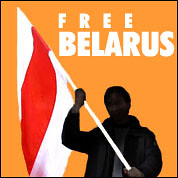Leveraging Government to Squash Competition
John Stossel tells us about Washington State politicians and their "Cosmetology Board" designed to crush upstart competition from entrepreneurs giving the consumer exactly what they want:
Some years ago, a married couple, Taalib-Din Uqdah and Pamela Farrell, went into business braiding hair, African-style. They called their shop Cornrows & Co. If politicians' speeches are right, Uqdah and Farrell were heroes: Inner cities need businesses, and the couple had built a booming business in Washington, D.C. They had 20,000 customers, employed 10 people and took in half a million dollars a year. Some women came from as far away as Connecticut, six hours away, to have their hair braided by Cornrows & Co.
Did the politicians honor these entrepreneurs for contributing to the community? Find ways to encourage others to do similar things? Well, the government did respond. But it wasn't with encouragement.
Local bureaucrats ordered Uqdah to cease and desist, or be "subject to criminal prosecution." Why? Because he didn't have a license. "It's a safety issue," said the regulators. Those who run a hair salon must have a cosmetology license. The chemicals they use dyeing or perming hair might hurt someone.
Hair dye is hardly a serious safety threat, but even if it were, Cornrows & Co. didn't dye or perm hair. They only braided it. That didn't matter, said the Cosmetology Board -- they still had to get a license. In order to get one, Uqdah would have to pay about $5,000 to take more than 1,000 hours of courses at a beauty school.
The ruse of using "liscensing" to isolate established businesses from competition is not limited to the hairdressers, but it's that much more transparent due to the trivial nature of business. In the great majority of cases, liscensing does more to "protect" the consumer from lower prices, greater innovation, and better customer service than anything else.
Thank God the Institute for Justice is there to fight for the freedom of individuals to conduct economic activities without such clearly ridiculous government interference.
Some years ago, a married couple, Taalib-Din Uqdah and Pamela Farrell, went into business braiding hair, African-style. They called their shop Cornrows & Co. If politicians' speeches are right, Uqdah and Farrell were heroes: Inner cities need businesses, and the couple had built a booming business in Washington, D.C. They had 20,000 customers, employed 10 people and took in half a million dollars a year. Some women came from as far away as Connecticut, six hours away, to have their hair braided by Cornrows & Co.
Did the politicians honor these entrepreneurs for contributing to the community? Find ways to encourage others to do similar things? Well, the government did respond. But it wasn't with encouragement.
Local bureaucrats ordered Uqdah to cease and desist, or be "subject to criminal prosecution." Why? Because he didn't have a license. "It's a safety issue," said the regulators. Those who run a hair salon must have a cosmetology license. The chemicals they use dyeing or perming hair might hurt someone.
Hair dye is hardly a serious safety threat, but even if it were, Cornrows & Co. didn't dye or perm hair. They only braided it. That didn't matter, said the Cosmetology Board -- they still had to get a license. In order to get one, Uqdah would have to pay about $5,000 to take more than 1,000 hours of courses at a beauty school.
The ruse of using "liscensing" to isolate established businesses from competition is not limited to the hairdressers, but it's that much more transparent due to the trivial nature of business. In the great majority of cases, liscensing does more to "protect" the consumer from lower prices, greater innovation, and better customer service than anything else.
Thank God the Institute for Justice is there to fight for the freedom of individuals to conduct economic activities without such clearly ridiculous government interference.



0 Comments:
Post a Comment
<< Home